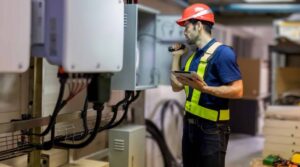The workplace of the future is a topic that has sparked much curiosity and debate in recent years. As technology evolves and society changes, so too will the way we work. The rise of artificial intelligence, remote work, automation, and global connectivity is reshaping the traditional office environment. But what exactly will the workplace of the future look like? In this article, we will explore the emerging trends and technological advancements that will define the workplace of tomorrow.
The Role of Technology in the Future Workplace
Technology will undoubtedly play a pivotal role in shaping the workplace of the future. With the rapid development of artificial intelligence (AI), machine learning, and automation, many tasks that were once done by humans will be automated. This will not only increase productivity but also free up employees to focus on more creative and strategic tasks.
In the future, AI will become more integrated into daily operations, assisting with everything from customer service to decision-making. Advanced algorithms will be able to analyze vast amounts of data to provide insights that humans might miss. As a result, employees will rely on AI-driven tools to enhance their efficiency and accuracy. Virtual assistants, powered by AI, could take on administrative tasks, schedule meetings, and even answer customer inquiries, allowing workers to focus on more complex and meaningful work.
Automation will also transform manufacturing and other industries, replacing manual labor with robots that can perform tasks more efficiently. While this may lead to job displacement in certain sectors, it will also create new opportunities for workers to engage in higher-value activities. For example, roles in robotics management, programming, and AI development will be in high demand.
The Rise of Remote and Hybrid Work Environments
One of the most significant changes in recent years has been the rise of remote and hybrid work environments. The COVID-19 pandemic accelerated the adoption of remote work, forcing many businesses to rethink their approach to office space and employee flexibility. As we look to the future, it is clear that remote and hybrid work will become a permanent feature of many workplaces.
The workplace of the future will not be confined to a single location. Instead, employees will have the flexibility to work from anywhere in the world, as long as they have access to the internet. This shift will be enabled by cloud-based collaboration tools, video conferencing platforms, and advanced communication technologies. Teams will be able to collaborate seamlessly across time zones and geographical locations, breaking down the barriers of traditional office spaces.
However, remote work will not come without its challenges. Maintaining a sense of connection and collaboration among employees will be crucial. Companies will need to invest in virtual team-building activities, communication tools, and strategies to foster a strong company culture, even when employees are not physically present in the same office. This means that the future workplace will not just be about technology; it will also require new approaches to leadership, communication, and employee engagement.
Flexible Workspaces and the End of the Traditional Office
As remote work becomes more common, the need for traditional office spaces will decrease. However, this does not mean that physical office spaces will disappear entirely. Instead, workplaces of the future will be more flexible and adaptable to the needs of employees.
Hot desking, co-working spaces, and shared office environments will become more prevalent, allowing employees to choose where and how they work. Companies will provide employees with the freedom to design their own workspaces, whether they are working from home, in a co-working space, or at a company office. These flexible workspaces will be equipped with the latest technology to facilitate collaboration and communication, including high-speed internet, video conferencing tools, and virtual whiteboards.
The traditional office will evolve into a collaborative hub, designed for teamwork, brainstorming sessions, and innovation. Instead of rows of cubicles and closed-door offices, the workplace of the future will feature open spaces, lounges, and meeting rooms that encourage creativity and interaction. Employees will no longer be tied to a desk, and the concept of a “fixed” office will become a thing of the past.
The Impact of Artificial Intelligence on Job Roles
While many jobs will be transformed or automated by AI and automation, this does not necessarily mean that humans will be replaced. In fact, the workplace of the future will see a shift in the types of roles available. Many routine and repetitive tasks will be handled by machines, allowing humans to focus on more complex, interpersonal, and creative tasks.
In the future, workers will be expected to possess a broader range of skills, including digital literacy, emotional intelligence, and creativity. For example, while AI may handle data analysis, humans will still be needed to interpret the results, make strategic decisions, and build relationships with clients and colleagues. As automation takes over certain aspects of work, employees will increasingly be asked to perform tasks that require critical thinking, problem-solving, and collaboration.
One of the most significant changes will be the rise of “hybrid” roles, where employees combine technical and human skills. For example, AI specialists will need to collaborate with designers and marketers to create user-friendly, customer-centric products. Workers will need to continuously upskill and adapt to the changing technological landscape in order to remain relevant in the workforce.
Diversity, Equity, and Inclusion in the Future Workplace
As the workplace of the future evolves, so too will the focus on diversity, equity, and inclusion (DEI). Companies are increasingly recognizing the importance of creating inclusive work environments that value diverse perspectives, experiences, and backgrounds. The workplace of the future will be one where DEI is not just a buzzword but a core value that is integrated into every aspect of the organization.
Technology will play a significant role in promoting diversity and inclusion. AI and data analytics will be used to identify biases in hiring processes and ensure that candidates are selected based on their skills and qualifications, rather than unconscious biases. Virtual reality (VR) and augmented reality (AR) will also be used to create more inclusive training and development programs, allowing employees to experience different perspectives and cultures.
In addition to technology, workplace culture will also shift towards greater flexibility and support for employees from diverse backgrounds. This includes providing accommodations for employees with disabilities, supporting work-life balance, and creating an environment where all employees feel valued and heard.
The Importance of Mental Health and Wellbeing
As work becomes increasingly integrated into our lives, the importance of mental health and wellbeing in the workplace will become more apparent. The workplace of the future will prioritize the mental and emotional health of employees, offering support and resources to help them manage stress, burnout, and mental health challenges.
Companies will implement wellness programs that focus on physical, mental, and emotional health, including access to therapy, mindfulness practices, and fitness programs. The integration of technology, such as wearable devices that monitor stress levels, will allow employees to track their wellbeing and receive personalized recommendations to improve their health.
Workplace policies will also evolve to address mental health concerns. Flexible work hours, remote work options, and the ability to take mental health days will become standard practices. Companies that prioritize employee wellbeing will not only attract top talent but will also see improved productivity and employee satisfaction.
Conclusion: Embracing Change and Innovation
The workplace of the future will be drastically different from the one we know today. Technological advancements, flexible work arrangements, and a focus on diversity, equity, and inclusion will transform the way we work. While automation and AI will change the nature of certain job roles, they will also create new opportunities for workers to engage in more meaningful and creative tasks.
As we look ahead, it is important for both employers and employees to embrace change and innovation. The workplace of the future will require a shift in mindset, as well as a commitment to continuous learning and adaptation. By staying agile and open to new possibilities, we can ensure that the workplace of tomorrow is one that is more inclusive, productive, and fulfilling for everyone.



